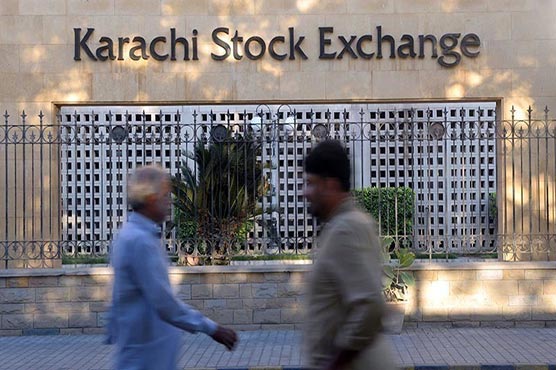Positive FATF signs assist stock rally

The Index opened at 40,325.75 today, and closed at 40,276.93 yesterday.
KARACHI (Dunya News) – Pushed by a few positive triggers and signs of positive outcome from FATF meetings in Paris, the stock market obtained 125.78 points or 0.31pc on Tuesday, and reached 40,402.71 as of 12.09pm. The Index opened at 40,325.75 today, and closed at 40,276.93 yesterday.
Analysts have opined that Pakistan might escape black list, but remain in grey list for another three or six months.
In previous weeks, the market kept struggling for its sustainability when confusion and uncertainty surrounded investors until late Friday when the IMF, in its concluding remarks affirmed that Pakistan had been successful in completing the "structural benchmarks" as well as in meeting "all end-December performance criteria" which had been set for the implementation of $6 billion Extended Fund Facility programme.
Previously, other persisting factors in the decline of stock market were the FATF concerns and large suspension of imports from China, which had been hammering the stock market, following the outbreak of COVID-19. Besides, strife political disagreements between coalition parties in the government until some of them were settled in meetings with the ruling PTI.
Since mid-January, investors have been adopting extremely cautious behaviour after more headlines cover mounting deaths due to coronavirus taking full hold, a plunge in global crude oil prices, unchanged main policy rate by the State Bank of Pakistan at 13.25 percent for the next two months and political uncertainty in the country.
Investors were also rattled over the inflation figures for January which came out at an alarming 12-year high of 14.6pc.
The SBP in the latest monetary policy statement kept the interest rate unaltered and pushed selling in the leveraged sectors such as cement and steel. Concerns over higher than expected reading of inflationary pressures and political uncertainty sparked by coalition partners of the government also kept investors away from the market.
Several reports claimed that the substantial progress was made to pull the country out of the FATF’s grey list, but Minister for Economic Affairs Hammad Azhar noted it was premature to speculate on any outcome.
Some traders and businessmen in Pakistan said that loading of goods in China has come to a halt. Most industries that depend on raw materials imported from China usually build stocks to last them through the holiday closure, but in some cases at least those stocks are now running low and businesses are left wondering when normal imports might resume.
Southeast Asian stocks fall
Most Southeast Asian stock markets fell on Tuesday, as global sentiment soured after Apple became the latest company to flag lower revenue due to the coronavirus epidemic that has slowed economic activity in the region.
Thai shares and Singapore stocks fell 0.7% and 0.6%, respectively, making the them the top losers in the region.
Both Singapore and Thai economy have suffered following the outbreak, with Thailand expecting the number of foreign visitors to fall by 5 million this year, while Singapore lowered its 2020 growth target on Monday.
Apple Inc said it was unlikely to meet its sales outlook because of the epidemic, which has claimed more than 1,800 lives in mainland China and infected about 72,500 people.
The warning from the world’s most valuable technology company could nudge markets to re-evaluate the macro impact of the epidemic, Maybank said in a note.
Financials stocks led losses in Singapore, with top lender DBS Group Holdings Ltd ticking down 0.6%.
Singapore Airlines lost up to 1.9% after it said it will temporarily cut flights across its global network in March, April and May due to weaker demand as a result of coronavirus.
The city-state is expected to roll out a hefty stimulus package at its annual budget later on Tuesday.
Consumer staples were top losers in Thailand, with convenience store operator CP All Pcl and sports drinks maker Osotspa Pcl falling up to 1% and 1.7%,respectively.
Bucking the trend, Indonesian equities rose on the back of gains in consumer staples and materials stocks.
"Investors are keeping an eye on the rate decision due on 20th February, " Hariyanto Wijaya, head of Investment Research at Mirae Asset Securities said.
Economists say poor growth data and impact of the virus outbreak on the economy may pressure the Indonesian central bank to start cutting interest rates again, following four rate cuts in 2019.

